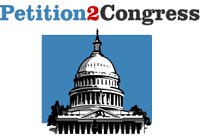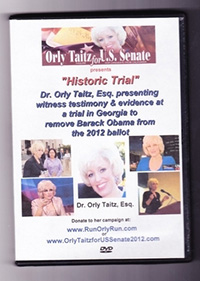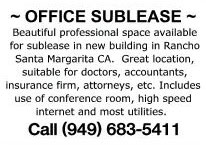Criminal complaint and demand for information under FOIA sent to the Inspector general of National Archives
Posted on | August 12, 2013 | 2 Comments
Dr. Orly Taitz, ESQ
29839 Santa Margarita, ste 100
Rancho Santa Margarita, CA 92688
08.12.2013
Attn Paul Brachfeld
Inspector General of the National Archives and Records
700 Pennsylvania Ave, NW, Washington DC 20408
Request for investigation and production of National Archives records under 5USC 552 Freedom of Information act in regards to the evidence of falsification of records in the National archives
Dear Mr. Brachfield,
Please, find attached a 146 page file, which shows Mr. Barack Obama using a Social Security number 042-68-4425, which failed E-verified and was never assigned to him, using a fabricated Selective Service Certificate with a fabricated cancellation USPS postal stamp affixed and a computer generated forgery instead of a valid birth certificate.
According to Mr. Obama’s biography, which he submitted to his publisher Acton-/Dystal, he was born in Kenya and raised in Indonesia. This biography was kept on line and in print until 2007, when Mr. Obama decided to run for the U.S. Presidency and needed to be “a natural born citizen”, born in the US.
At issue is a flagrant forgery of records of National Archives under your supervision. As you can see in the attached Exhibit 18, archives of the immigration records July 28, 1961-August 7, 1961 microfilm RG 85 A3573 INS, Honolulu, HI Arrivals July 28.1961- August 7, 1961, part of the microfilm was removed from the National Archives. After multiple requests for explanation and complaints, as to why all the other records for 1961 exist, while the records for the week of August2-7, 1961are missing there was further falsification of the records as the label on the cover of the aforementioned microfilm was falsified.
This is particularly suspect, as according to Mr. Obama’s own admission in his aforementioned biography, Mr. Obama was born in Kenya and the week of August 2-7 would be the week of his arrival in the U.S.
Further on, a yet to be identified employee of the National Archives or burglar attempted to cover tampering and destruction of records by further falsifying the immigration records. Such employee of the National Archives or burglar erased “7” in the cover title of the box with the microfilm and wrote instead “1” on the cover of the box with the microfilm for July 28, 1961-August 7, 1961 microfilm RG 85 A3573 INS, Honolulu, HI Arrivals July 28.1961- August 7, 1961. This was done to cover up prior tampering and cutting off a part of the original July 28-August 7 Microfilm.
On March 22, 2012 aforementioned cover of the box with microfilm was photographed by a reporter Jerry Corsi. The cover stated RG 85 A3573 INS, Honolulu, HI Arrivals July 28.1961- August 7, 1961
While the cover stated July 28-August 7, part of the microfilm from August 2-August 7was cut off. Mr. Corsi publicly raised concerns and sought explanation.
On December 12, 2012, Mr. Montgomery Sibley received under 5US 552 information in regards to the same microfilm.
At that time the same box stated RG 85 A3573 INS, Honolulu, HI Arrivals July 28.1961- August 1, 1961, the label was falsified.
Falsification of the record was rather crude, as can be seen on the Exhibit B, as “7” was simply erased and “1” was written on top of it. Someone decided to be “creative” and “solved” the problem of missing microfilm by simply erasing the original date on the box of microfilm and writing a new date.
This was done along the lines of other crude forgeries in other documents relating to the Identification of Mr. Obama as can be seen in Exhibits 1-23 pp1-146.
So it is clear that between March 22, 2012 and December 13,2012 someone engaged in falsification of NARA record and changed the date on the box with microfilm in order to cover up prior falsification and prior cutting off a part of the aforementioned microfilm. A logical conclusion is that the person involved in the second tampering with NARA records, in changing the date on the cover of the microfilm, was the same person who was involved in the first tampering with records, cutting off a part of the microfilm, or this person was connecting to the individual who was culpable in the first tampering of records.
As such I am requesting not only the microfilm in question, but also copies of security camera films, employee signing in sheets, guest signing in sheets, time cards, electronic sign in from March 22, 2012 and December 13, 2012.
I m also requesting any and all information of any reports of break in, unauthorized entry, missing records for the same dates.
This tampering with NARA records appear to be an action in furtherance of RICO (Racketeering Influenced Corrupt Organization), which includes several federal officials, state officials in Hawaii and several judges, which was created with the purpose of the cover up of the fact that Barack Obama, citizen of Indonesia, born in Kenya, is committing fraud and using falsified, fabricated and stolen records as a basis of his identity and legitimacy for the U.S. Presidency.
Mr. Brachfeld, I am submitting herein my complaint, alleging tampering with NARA records and I am requesting herein an investigation and disclosure under 5USC 552 FOIA of the following information:
1. Any and all copies of the INS, Honolulu, HI arrivals for August 2-7, 1961, including a microfilm cut out from the original July 28, 1961-August 7, 1961 microfilm RG 85 A3573 INS, Honolulu, HI Arrivals July 28.1961- August 7, 1961
2. Names of all the employees, including custodians, who had access to such records
3. Any and all security camera films for the aforementioned NARA facility from March 22, 2012 to December 13, 2012, as well as time cards, employee electronic sign in, guest sign in sheets, any reports of breaking in, missing records and hard copy sign in for the same dates.
3. Results of your investigation, as to which employee removed the immigration arrival records for August 2-7 1961 RG 85 A3573 INS, Honolulu, HI Arrivals July 28.1961- August 7, 1961
and which employee falsified the label of the immigration arrival records for RG 85 A3573 INS, Honolulu, HI Arrivals July 28.1961- August 7, 1961
4. Any and all information and records as to whether you forwarded this evidence to law enforcement. If you did not forward this information to law enforcement, what is the justification for the cover up.
5. Any and all NARA records for Harrison (Harry) Bounel, born in 1890, in Russia, immigrated to the US in 1912, presumed to be deceased.
Dear Mr. Brachfeld, just to stress importance of this FOIA request, I would like to refresh your memory with an attached article on Watergate burglary and tampering of records from u-s-history.com
Per 5SSA 552 FOIA the information requested has to be produced within 20 working days. Current request is being sent on 08.12.2013 and response has to be produced on September 5, 2013. if response is not received within the time frame allowed by 5US552, I will consider lack of information as a denial of the request at hand and will be seeking a redress and appeal of such denial through the court of law.
Information requested is the matter of public concern and there should not be charge for copying of the records requested. If the agency refuses to waive the fee, I am requesting a Vogn index with a list of all documents in the possession f the agency, total number of pages and fee per page charged by the agency.
Respectfully Dr.Orly Tatz, ESQ
https://www.u-s-history.com/pages/h1791.html
Before the summer of 1972, the word “Watergate” meant nothing more than an office and luxurious apartment complex in Washington, D.C. As a result of a “third-rate burglary” on June 17 of that year, it came to be associated with the greatest political scandal of that century and would change the lives of the many people involved — especially President Richard M. Nixon.
While doing his rounds at the Watergate Hotel in the early morning of June 17, 1972, security guard Frank Wills found a door, located between the basement stairwell and the parking garage, that was being prevented from latching by a piece of tape. He removed the tape and continued his rounds. Returning to the same spot later, he discovered that someone had re-taped the door. His curiosity now aroused, he called the police. Around 2:30 a.m., after the police arrived, five men, wearing business suits and latex gloves, were arrested in the offices of the Democratic National Committee. The men had been repairing wiretapping equipment and, according to some, taking pictures of documentation.
The five burglars were later identified as Bernard Barker, Virgilio Gonzalez, Eugenio Martinez, Frank Sturgis, and James W. McCord Jr. Bob Woodward of the Washington Post was present at their arraignment and overheard McCord mention “CIA” in connection with his occupation. Another of the arrested men identified his occupation as “anti-communist.” Intrigued, Woodward investigated further. It was later established that McCord was responsible for security for the Committee to Re-Elect the President (CRP), i.e. to re-elect Republican Richard M. Nixon. Another link to the White House came to light when the phone number for E. Howard Hunt, a former White House employee, was found in Barker’s notebook.
It later appeared that Hunt and G. Gordon Liddy, who was a member of the “Plumbers” and therefore connected with the White House, had been stationed nearby and were in communication with the burglars. The White House’s Special Investigation Unit, nicknamed the “Plumbers,” had been established by John Ehrlichman to prevent information leaks from the White House and were also involved in various activities perpetrated against Democrats and antiwar protestors. Their most famous mission was the break-in at the home of former Pentagon employee Daniel Ellsberg, where they unsuccessfully attempted to prevent further leaks of confidential information, the Pentagon Papers). Four of the burglars had CIA connections and had been involved in the Bay of Pigs Invasion.
Almost immediately, a cover-up was undertaken by persons associated with the president and his campaign. Jeb Magruder and others destroyed documents and lied to investigators. The acting director of the FBI, L. Patrick Gray, received and destroyed documents from Ehrlichman, who was a top aide to the president, and from White House council John Dean III. After learning from White House Chief of Staff Robert Haldeman on June 23, 1972, that his former attorney general John Mitchell, who was now running the Committee to Re-elect the President (CREEP), might be involved; President Nixon instructed Haldeman to head off a possible FBI investigation. Nixon argued that the investigation might interfere with a CIA operation. Dean and others later tried to get the CIA to go along with the plan. On July 1, Mitchell resigned from the CREEP. He cited “personal reasons.”
Woodward teamed up with Carl Bernstein to report on the Watergate scandal throughout the summer. Woodward and Bernstein received information from someone with inside knowledge of the White House, a source known as “Deep Throat.”* According to Woodward, Deep Throat only confirmed information that Woodward had already received from other inside sources. The Post‘s interest in the case was not shared much by other newspapers. Although the Post continued to investigate, little more came to light during the balance of the campaign. On August 19, Nixon declared that no one then employed in his administration was involved in Watergate. On September 15, indictments were handed down on the five men arrested on June 26, plus Liddy and Hunt.
On November 7, 1972, Nixon was re-elected president in one of the most resounding landslide victories in American political history, losing only Massachusetts and the District of Columbia to Senator ^George McGovern. Information obtained from the Democratic National Committee offices was allegedly used to aid Nixon in his re-election campaign.
In January 1973, two months after Nixon’s re-election, the seven indicted men were tried before Judge John Sirica in the U.S. District Court in Washington, D.C. Five pleaded guilty, and McCord and Liddy were convicted of conspiracy, burglary, and illegal wiretapping. Meanwhile, suspicions grew that the break-in was part of a broad program of political espionage. The U.S. Senate voted to conduct an investigation. The grand jury continued to hear witnesses.
During hearings on Gray’s nomination to be made permanent director of the FBI, he revealed that he had given FBI Watergate files to Dean. His testimony suggested that other top White House aides were involved in clandestine activities. On March 21, Dean wrote to Nixon and warned him that Watergate had become a “cancer growing on the presidency.” He said that Hunt had issued a thinly veiled threat to tell about the Plumbers’ activities unless he received hush money. That night, $75,000 was passed to Hunt. Nixon later stated publicly that he had begun a new investigation of Watergate on March 21, but on March 22 he told Mitchell, “I want you all to stonewall it, let them plead the Fifth Amendment; cover-up or anything else, if it’ll save it; save the plan.”
In a letter to Judge Sirica received on March 23, McCord charged that witnesses had committed perjury at the trial and that the defendants had been pressured to plead guilty and remain silent. Hoping to avoid a severe sentence, McCord cooperated with investigators and implicated Dean and Magruder in the break-in. Dean and Magruder then abandoned the cover-up and implicated other White House and CRP officials. Investigators were told that Mitchell had approved the break-in, that transcripts of conversations taped at the DNC were given to aide Gordon C. Strachan for delivery to Haldeman, and that Ehrlichman had ordered the destruction of documents. On April 30, Nixon announced the resignations of Haldeman and Ehrlichman, and the firing of Dean. Attorney General Richard Kleindienst resigned rather than prosecute men he knew. Nixon and Elliot Richardson, the new attorney general, approved the creation of a special prosecutor’s office, headed by Archibald Cox of the Harvard Law School.
The Senate’s Select Committee on Presidential Campaign Activities, under the chairmanship of Senator Sam Ervin of North Carolina, opened public hearings in May. In the end, 40 government officials were indicted. Dean’s testimony linked Nixon and his re-election fundraising committee to the cover-up. Haldeman, Ehrlichman, and Mitchell denied wrongdoing and defended the president.
On July 16, 1973, Alexander Butterfield, a former White House official, testified to the Ervin Committee that Nixon had taped his own conversations in the White House for a period of time that included the alleged Watergate cover-up. Cox subpoenaed a number of tapes that he felt were essential to the investigation. Nixon refused to release them. Judge Sirica directed Nixon to let him hear the tapes. Nixon appealed the order, arguing that a president was immune from judicial orders enforcing subpoenas and that under the concept of executive privilege only he could decide which communications could be disclosed.
When the U.S. Court of Appeals upheld Sirica, Nixon countered with a suggestion that Senator John Stennis of Mississippi listen to the tapes and verify an edited version that Nixon would submit to the grand jury and to the Senate committee. Cox rejected this proposal along with Nixon’s order that he make no further attempts to obtain tapes. Nixon told Attorney General Richardson to fire Cox. Richardson, having assured Congress that the prosecutor would be free to pursue the investigation, resigned instead. Nixon gave the same order to Deputy Attorney General William Ruckelshaus, who also refused. Nixon fired him. His Solicitor General Robert Bork then fired Cox. The actions of October 20, which became known as the “Saturday Night Massacre,” launched the first serious moves to impeach Nixon.
Nixon at last agreed to give the tapes to Sirica, and he appointed Leon Jaworski, a Texas attorney, to succeed Cox. Nixon guaranteed that Jaworski would be free of White House control. However, problems with the tapes got worse. According to the White House, two subpoenaed conversations had never been taped and another contained an 18-minute gap. On December 7, 1973, Rose Mary Woods, Nixon’s loyal secretary, claimed it was an accident. Six court-appointed electronics experts said that at least five separate erasures had caused the gap. Suspicions grew that evidence had been deliberately destroyed.
Evidence against Nixon, given to Judge Sirica by the grand jury, was turned over to the House Judiciary Committee, which had begun its impeachment investigation. The committee subpoenaed 42 more tapes in April 1974. On April 30, Nixon released edited transcripts but not the actual recordings of 46 conversations. Legal experts disagreed on whether the transcripts established that Nixon was a part of the conspiracy. What was clearly shown was Nixon’s vulgar speech habits, and the phrase “expletive deleted” entered common use.
Meanwhile, Jaworski asked Sirica to subpoena 64 tapes and documents. Nixon refused the subpoena, claiming executive privilege, and Jaworski took the issue to theU.S. Supreme Court. In an 8-to-0 decision on July 24, with William Rehnquist abstaining, the court rejected Nixon’s claim and ordered him to obey the subpoena. Nixon did so.
When the president’s lawyer, James St. Clair, learned that one of the 64 tapes was made on the June 23, 1972, conversation with Haldeman in which Nixon sought to thwart the FBI investigation, he insisted that Nixon publish it. Nixon did so on August 5, 1974.
Having opened its impeachment hearings on May 9, the House committee had already considered five possible articles of impeachment and over a period of several days in late July, approved three of them. Barbara Jordan discussed the ramificationsof the impeachment process:
It is wrong, I suggest, it is a misreading of the Constitution for any member here to assert that for a member to vote for an article of impeachment means that that member must be convinced that the President should be removed from office. The Constitution doesn’t say that. The powers relating to impeachment are an essential check in the hands of the body of the legislature against and upon the encroachments of the executive. The division between the two branches of the legislature, the House and the Senate, assigning to the one the right to accuse and to the other the right to judge, the framers of this Constitution were very astute. They did not make the accusers and the judgers — and the judges the same person.
Nixon’s strongest supporters in Congress had said they wouldn’t vote to impeach without a “smoking gun” but the June 23 tape was it. Nixon’s support in Congress virtually disappeared. Facing certain impeachment and removal from office, Nixon resigned on August 8 in a nationally televised address, effective at noon August 9. During the address from the Oval Office, he said, “By taking this action, I hope that I will have hastened the start of the process of healing which is so desperately needed in America.”
His successor, Gerald Ford, decided that the nation needed to move beyond Watergate and so on September 8, he pardoned Nixon for any crimes he might have committed during his term as president. On March 1, 1974, a grand jury had indicted seven former White House aides — Haldeman, Ehrlichman, Mitchell, leading aid Charles Colson, Gordon C. Strachan, Robert Mardian, and Kenneth Parkinson — for obstructing the Watergate investigation. Nixon had been named an unindicted co-conspirator, and Dean and Magruder, along with lesser figures in the scandal, had already pleaded guilty. Colson later pleaded guilty to charges concerning the Ellsberg case and cover-up charges against him were dropped as were all charges against Strachan. The remaining five went on trial in October 1974, and on January 1, 1975, all but Parkinson were found guilty. In 1976, a court of appeals ordered a new trial for Mardian, and eventually all charges against him were dropped. Ehrlichman went to prison in 1976, Mitchell and Haldeman in 1977.
*W. Mark Felt, the No. 2 man in the FBI during the early 1970s has, in his old age, claimed himself as “Deep Throat.”
—- Selected Quotes —-
Quotes regarding Watergate Scandal.
By Earl Warren
If Nixon is not forced to turn over tapes of his conversations with the ring of men who were conversing on their violations of the law, then liberty will soon be dead in this nation. If Nixon gets away with that, then Nixon makes the law as he goes along — not the Congress nor the courts. The old Court you and I served so long will not be worthy of its traditions if Nixon can twist, turn and fashion the law as he sees fit.
Conversation with William O. Douglas^
By Gerald R. Ford
The political lesson of Watergate is this: Never again must America allow an arrogant, elite guard of political adolescents to by-pass the regular party organization and dictate the terms of a national election.
March 31, 1974, remarks to the New York Times
Comments
2 Responses to “Criminal complaint and demand for information under FOIA sent to the Inspector general of National Archives”
Leave a Reply












 29839 Sta Margarita Pkwy,
29839 Sta Margarita Pkwy, 
 Videography by Barbara Rosenfeld
Videography by Barbara Rosenfeld 


August 13th, 2013 @ 4:25 pm
ORLY, this is one of your most effective writings, and I am gonna keep it. You have told what I would say is a complete treatise on Obama, his birth, his crimes and his intent. Now let me couple this with a bit more good news.
Fred Thompson, the leading investigative attorney in the Nixon case, told me that Nixon was never impeached; the tapes were finally given up, then Nixon resigned, saying to Americans, “The presidency of the United States is far more important than the political career of Nixon or anyone else.
I am also sending you some more questions in an email. But if you want my honest opinion, I think Obama is ready to give cave in to you. I am planning on flying to LA and attending your court hearing. Then I would like to have a chat with you and show you my ideas, and determine if there is anything we can do to get that man out of the White House.
The comments above on Nixon and the break-in to the Watergate Hotel, in my opinion, were done without approval of the President.
Hope to see you in court on the 26th of Sept. Keep swinging, Orly, the advantage has moved to the RIGHT side, thanks to an excellent attorney who refuses to call it quits. For that, I salute you lady.
Henry Tisdale
August 16th, 2013 @ 6:13 am
OBAMA is not only claiming exec. privy but
hiding his records under his bed.
The whistleblower, who examined his application showing his country as Indonesia
and his giving money to KENYA is part of the
HUSH tatics so similar to NIXON.
The SENATE now has the responsability to give the nod to go forward with IMPEACHMENT.
Too many OBAMA puppets, I guess.